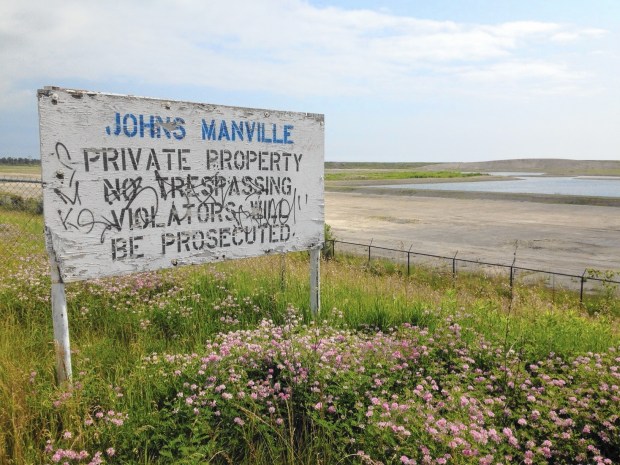Current thinking among many Americans is that the federal government is a hindrance to our freedoms. The opposite was true 55 years ago.
That’s when President Richard Nixon signed the act creating the U.S. Environmental Protection Agency and proclaiming April 22 as Earth Day. The day has since morphed into a month, which is OK because the planet needs all the help it can get.
The beginnings of the EPA started with bipartisan support. That’s when Republican lawmakers had consciences when it came to air, water and land pollution, among their constituents.
Most surprising was when Republican Nixon, he of the “imperial presidency,” signed the EPA Act into law. That was one of those national watershed movements after years of warnings of ecological damage, especially from neo-environmentalist Rachel Carson in her 1962 groundbreaking book “Silent Spring.”
Most people didn’t know how to mark the initial Earth Day in April 1970, with many turning it into a counterculture celebration of Mother Earth. Since then, it has grown to include fostering recycling efforts, clean water endeavors, concerns over greenhouse gases and climate change, and urging alternative energy sources.
All of that could be lost as the administration of President Donald Trump seeks to turn back hard-fought biosphere victories of the past decades. Republican Trump has boosted coal mining despite concerns over the deleterious effects of the mineral.
Coal-burning plants currently generate less than 20% of U.S. electricity, a drop from 50% in 2000, according to the Energy Information Administration. Fracking and other drilling techniques have hiked production of natural gas, while solar and wind power have cut into the use of coal.
The Trump administration also has exempted 47 companies from regulations to curb mercury and air toxins for coal-fired power plants for two years, according to a list of facilities published by the Environmental Protection Agency last week, the global news agency Reuters reported.
The fear of environmentalists from the increasing use of coal is its byproduct: Coal ash and its composition of heavy metals. More than an estimated 100 million tons of coal ash are produced annually in the U.S., much of which sits near lakes and rivers, such as the NRG Energy site along Waukegan’s Lake Michigan shoreline.
If the Trump administration wants states to begin enforcing and overseeing a number of administrative areas, such as education, then Illinois is on the right track. The state Pollution Control Board issued an order last month agreeing with the state EPA that toxic coal ash must be removed from the settling ponds at the former ComEd coal-generated station at Greenwood Avenue and Pershing Road. The station operating since the 1920s was retired in May 2022.
NRG had pleaded with the IPCB that it needed only to cap the two ponds and another portion of the site. Company officials said they do not want to truck the coal ash from the site to a central disposal location. A federal appeals court in 2018 said old disposal areas at inactive electric-generating sites threaten to catastrophically fail and pollute groundwater.
That is what Waukegan, county and state officials are afraid of. Especially those in Waukegan who don’t want to see another legacy of industrial pollution turning into a future Superfund site, as city residents have seen from past environmental blunders.
The state EPA wants NRG to dispose of the waste away from the site, which is merely yards from Lake Michigan, the source of drinking water for much of Lake County. State officials say the coal ash is at risk of leaching into groundwater and spreading toxins into water sources.
The ICPB ruling is certainly a major win for environmental justice after a decade of legal wrangling. “The discharges from the area have caused a negative environmental impact,” the board wrote in its opinion.
Even with the recent ruling, it may be years before the lethal coal ash is removed from land within Waukegan’s city limits, as NRG surely will contest the IPCB decision. Still, there is a glimmer of hope that the land around the standing NRG power plant will no longer pose an environmental hazard for future Waukeganites.
It also should protect county residents who depend on Lake Michigan for their tap water. The long battle over coal ash is yet another reminder of Earth Day’s bedrock founding.
Charles Selle is a former News-Sun reporter, political editor and editor.
sellenews@gmail.com
X: @sellenews




